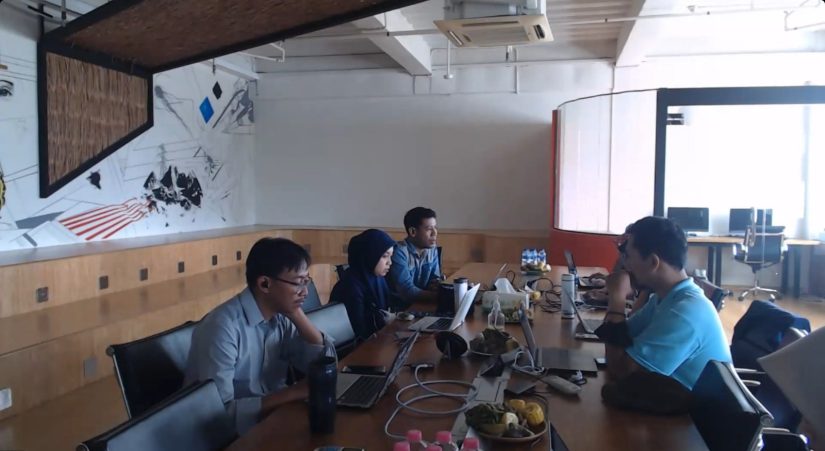
Yogyakarta, July 11th 2023─The Research Center for Politics and Government (PolGov) of the Department of Politics and Government held an Academic Roundtable Discussion (ARD) with the theme “All the President’s People? The Origins of Presidential-based Partisanship” on Tuesday (11/7). This event was carried out by involving general participants, lecturers from the Department of Politics and Government, and PolGov Researchers. Meanwhile, ARD is a routine agenda carried out by PolGov and is open to the public.
Hosted by Faiz Kasyfilham, a PolGov researcher, ARD presented Arya Budi, a Doctoral Candidate at the University of Illinois Urbana-Champaign and also a lecturer at the Department of Politics and Government. On this occasion, Arya explained the topic of his dissertation which discussed the phenomenon of Presidential-based Partisanship in electoral matters.
The concept of President-based Partisanship (Pres-ID) is a new concept that departs from several cases of massive protests carried out by supporters of presidential candidates at the time of determining the election winner. This dissertation reviews the background of supporters who are very loyal and possessive of political views that refer to candidates, not to parties.
Arya explained that Pres-ID was different from the concept of Party-ID. In party-ID attachments to parties in which there is affection, group reference because the basis is party performance evaluation. Meanwhile, Pres-ID is a leader based on partisanship, attachment to non-party leaders. Party-ID is long-term, but Pres-ID is short-lived which appears in the electoral period and then disappears after the new government takes office. The Pres-ID concept can be applied to all leaders who are expected to be in the top executive chair. This has implications for incumbents tending to get multiple sources.
“Pres-ID has two features, weak and strong presidential identification. If weak-ID could only come to voting, a political decision. Meanwhile, if it is strong, it will reach the level of forming political attitudes or your perception of every action and word of the candidate,” said Arya.
Then Arya explained that under certain conditions, Pres-ID could appear in an electoral period. One of the factors that can influence the emergence of Pres-ID is cleavage or conflict lines. Pres-ID will appear when there is an active cleavage in society that can be politicized. Electoral Setting can also be a factor in the emergence of Pres-ID. Then in the scope of the candidate, the factors inherent in the leader or candidate also influence the emergence of Pres-ID, including the intrinsic attributes of the leader, charisma, and public perceptions that regard the candidate as a representation of social groups. Political messages and campaign strategies for prospective candidates are important factors that also influence the formation of Pres-ID.
